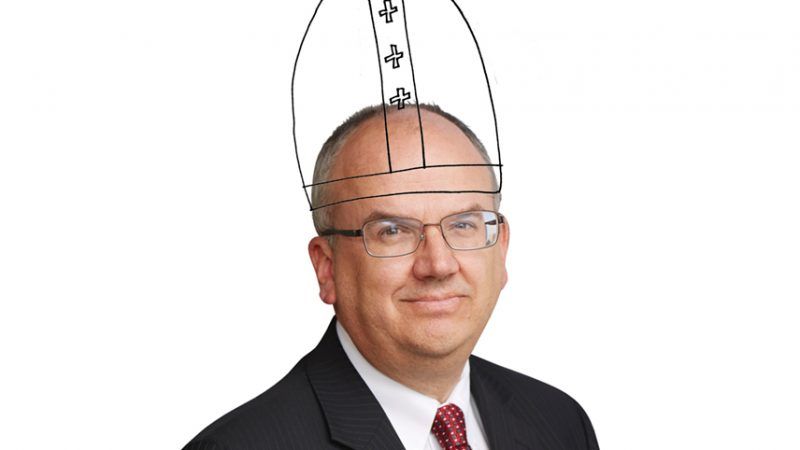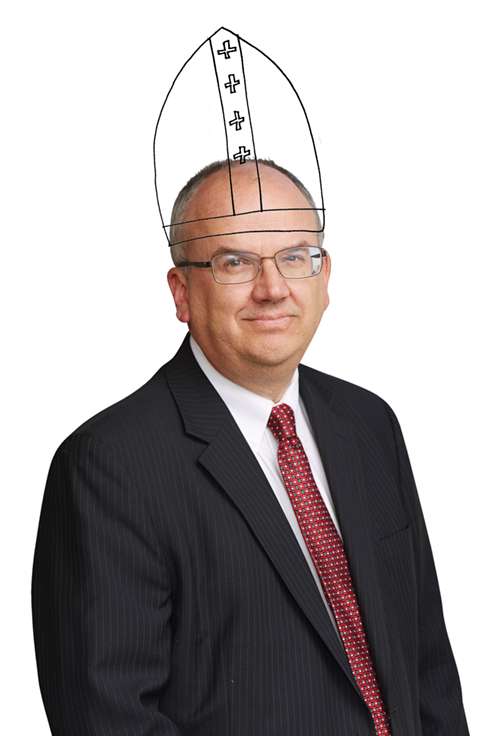Popehat's Ken White Sheds Light on Supreme Court Pick Brett Kavanaugh


In the era of big-budget comic book movies, Ken White is a different kind of superhero. The former federal prosecutor–turned–defense attorney has used his legal acumen and social media presence to educate Americans about the rites and rituals of U.S. attorneys and the finer points of the First Amendment. He is best known for putting out the "Popehat signal," a reference to his time as a pseudonymous legal blogger; he lights the beacon on Twitter as a way of recruiting fellow lawyers to take on First Amendment cases pro bono.
White's stature has grown substantially in the age of Trump. He's now a contributing editor at Reason and a podcaster whose appeal stems from a dedication to accuracy, a distaste for partisan politics, and an unshakeable commitment to the Constitution.
"When we buy into this narrative that free speech is a conservative value and censorship is a liberal value," he says, "we basically invite this chasm where the First Amendment and free speech values steadily get less and less support." To do that, he adds, is also "historically completely illiterate."
In July, White spoke with Reason's Nick Gillespie about what we're likely to see if President Trump's latest nominee to the U.S. Supreme Court is confirmed as anticipated.
Q: What can we expect from Brett Kavanaugh when it comes to the Fourth Amendment?
A: There's a limited amount of Fourth and Fifth Amendment case law from Kavanaugh. He's in the D.C. Circuit, which is less likely than some other circuits to have that sort of thing.
Q: A lot of politicians fall under his jurisdiction, so is he just trying to figure out if these people should be tried in a human court vs. at a zoo somewhere?
A: Well, politicians and the Federal Communications Commission [FCC] and the Federal Election Commission. That's why there's a lot of First Amendment stuff on him.
In terms of the Fourth Amendment, he seems to be more of the typical Rehnquist-Alito style of conservative. He's probably not quite as robust on protections as Scalia was. It's too early to tell, but he probably should not be seen as someone who will reliably hold the line on Fourth and Fifth Amendment rights.
Q: Where does he come down on the First Amendment?
A: I did a pretty deep dive into his First Amendment decisions, and here's what I saw: He'll be very supportive of what people, in a trash-talking way, call "weaponizing" the First Amendment. By that I mean he'll apply First Amendment protections to regulatory and economic-type laws, where the First Amendment has not always been robustly applied. The example of this that probably makes people the maddest is net neutrality. He's said several times, in FCC cases, that a [television] network's decision to air something is part of their First Amendment rights. You can't order them to air things or not air things [or] to carry certain things on cable unless you can meet the standards that the First Amendment applies. The parallel to net neutrality is that you can't make a company carry its competitors' content.
Q: In a broad sense, has Kavanaugh articulated a judicial philosophy, such as "textualism" or "originalism"?
A: Having pulled and read all of his First Amendment decisions, I can tell you this: He likes to write his own opinions. He likes to concur in the result but explain his own rationale for getting there. He tends to like simpler, cleaner paths to getting someplace, and I think that often resembles textualism or originalism. But I also think if he's confirmed, he's going to write a lot of dissents and concurrences telling the majority, "Hey, even if I agree with the outcome, you're doing it the wrong way."
Q: Do you worry about him shifting the balance of the court in a rightward direction?
A: It's certainly going to lead to a shift, but you have to think about it in context. The last 40 years have been a conservative reaction to the [famously liberal] Warren Court.
As I get older, I get less concerned about any one conservative president changing the court forever. There are changes, but they are rarely as stark or extreme as people predict. And as a First Amendment junkie, I'm happy that the rightward drift of the last few decades has not led to a narrowing of our First Amendment rights.
This interview has been condensed and edited for style and clarity. For an audio version, subscribe to the Reason Podcast.
This article originally appeared in print under the headline "Popehat's Ken White Sheds Light on Supreme Court Pick Brett Kavanaugh."


Show Comments (3)